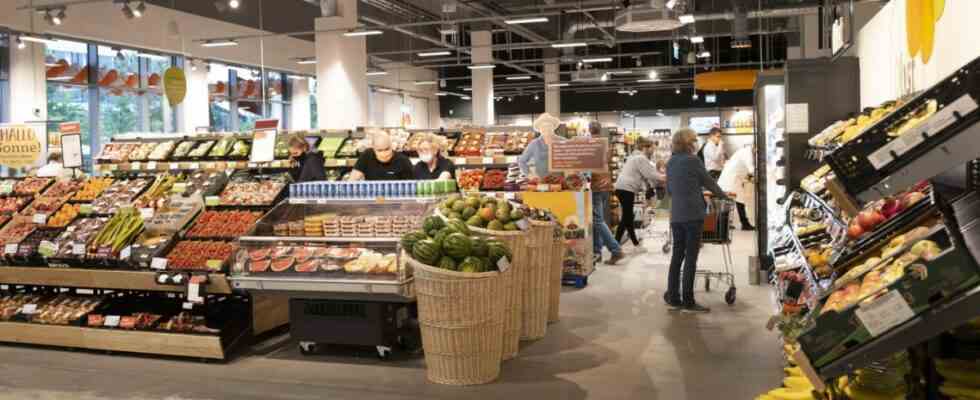Heat the apartment to 19 degrees, take shorter and less warm showers, switch off the light – there is no shortage of suggestions for saving energy. The managing director of the Tegut supermarket chain is now bringing up another idea that would affect all Germans directly in their everyday lives: shorter shop opening times. Only shop until 8 p.m., as is currently only usual in Bavaria and Saarland.
In the eyes of many consumers, Bavaria and the Saarland were therefore considered backwards compared to other federal states. In view of the hard 8 p.m. limit, the service concept would be neglected from the point of view of the working population, so the argument goes. Tegut boss Thomas Gutberlet sees Bavaria and the Saarland as role models precisely because of their short shop opening hours, at least as long as there is a risk of energy shortages.
He believes that this can even solve two of the problems that are currently affecting retail: “In the short term, a reduction would help to save energy,” said Gutberlet food newspaper. And: “In the long term, it would make the job profile in retail more attractive again.” This means that it is not just the electricity costs, which have risen by 150 percent since the beginning of the year, according to the trade association, which are currently burdening retailers so much that every second person is said to be fearing for their existence. There is also a lack of young professionals or employees who want to work late into the evening in supermarkets or other retail stores.
In any case, Gutberlet thinks it is so important to discuss shop closing times publicly that he wrote a letter to the governments of the federal states. That was four weeks ago and he has not yet received an answer.
“Now we often feel the anger of customers”
It’s also a touchy subject. The retail trade is also being burdened at the moment by the fact that many people are saving. Also in groceries, which have become much more expensive on average. Is it wise to shorten the opening hours? Then consumers will have even less time to spend their money.
But Gutberlet is not alone with his suggestion. Dieter Hieber, with 16 stores in the south-west of the republic one of Edeka’s top-selling independent retailers, has already created facts. He temporarily closes his markets on Wednesdays at noon. The reason for this, however, is not primarily energy saving, but a shortage of staff. Many have worked under extreme conditions since the beginning of the pandemic. Many felt drained, now frustration is added. “At the beginning of the pandemic, we were celebrated like heroes in the food trade,” Hieber told the trade press, “now we often feel the anger of customers when goods become more expensive or aren’t even there in the first place. The mood is tense.”
These gaps continue to gape on the shelves of many retailers, not just supermarkets. According to a survey by the Munich Ifo Institute, 77.5 percent of retailers complained about delivery problems in August. At the moment it doesn’t look as if the problems could all be solved before Christmas, the institute said. The reason for this is in particular the repeated lockdowns in China. Factories and ports would be repeatedly paralyzed as a result. On the other hand, no retailer in Germany can do anything in the short term.
Delivery bottlenecks, inflation, reluctance to buy, staff shortages and rising electricity costs, at least there is no shortage of problems for retailers at the moment. Tegut, part of the Migros Zurich cooperative, could start with itself like Edeka-Hieber. Some of the 270 or so markets in Germany are still open from 7 a.m. to 10 p.m. But what Tegut has reduced so far are only the opening hours of many service counters – the competition has completely abolished them in some cases. This saves electricity and, above all, personnel costs, but also makes the markets less attractive for many.

